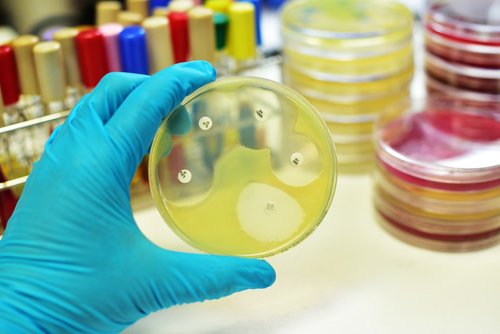
A pair of investigational drugs targeting antibiotic-resistant infections will receive nearly $20 million in initial funding from the Biomedical Advanced Research and Development Authority (BARDA) to support phase two and three clinical trials and other efforts to reach U.S. Food and Drug Administration (FDA) approval.
The efforts come from Vedanta Biosciences, Inc. and Locus Biosciences, respectively. Vedanta will receive $7.36 million in initial funding and could receive up to $76.9 million over nine and a half years to support the development of VE303. Another $11 million is being pumped into Locus Biosciences, with up to $77 million available over five years to develop LBP-EC01, as a means of treating C. difficile infections. VE303 could prevent C. difficile infections, while LBP-EC01 could treat recurrent urinary tract infections caused by drug resistant E. coli.
C. difficile infections are a serious problem that can arise during long-term use of antibiotics, or certain antibiotics specifically. It infects up to 250,000 people per year in the U.S. Antibiotic-resistant infections, in general, are a particularly worrisome modern issue owing to the large-scale use of antibiotics required to treat secondary infections during pandemics like COVID-19.
“Healthcare providers need tools at-the-ready to prevent or combat secondary bacterial infections, particularly those that impact a patient’s successful recovery following antibiotic usage in a public health emergency,” BARDA Acting Director Gary Disbrow said. “Infections associated with long-term antibiotic use are a growing concern and are often costly to treat, which makes developing novel drugs and technologies for prevention and treatment all the more urgent for U.S. health security.”
VE3030 will be packaged in a pill, consisting of eight bacteria that commonly reside in healthy people’s intestines and cause no harm to the body. It previously received help from the public-private partnership CARB-X. It would become the first FDA-approved live bio-therapeutic to address C. difficile.
LBP-EC01 used a mix of CRISPR technology and viruses that only infect bacterial cells to treat UTIs caused by E. coli. Such UTIs affect around 150 million people worldwide each year. If approved, the drug would be the first CRISPR engineered bacteriophage therapy to earn FDA approval.




